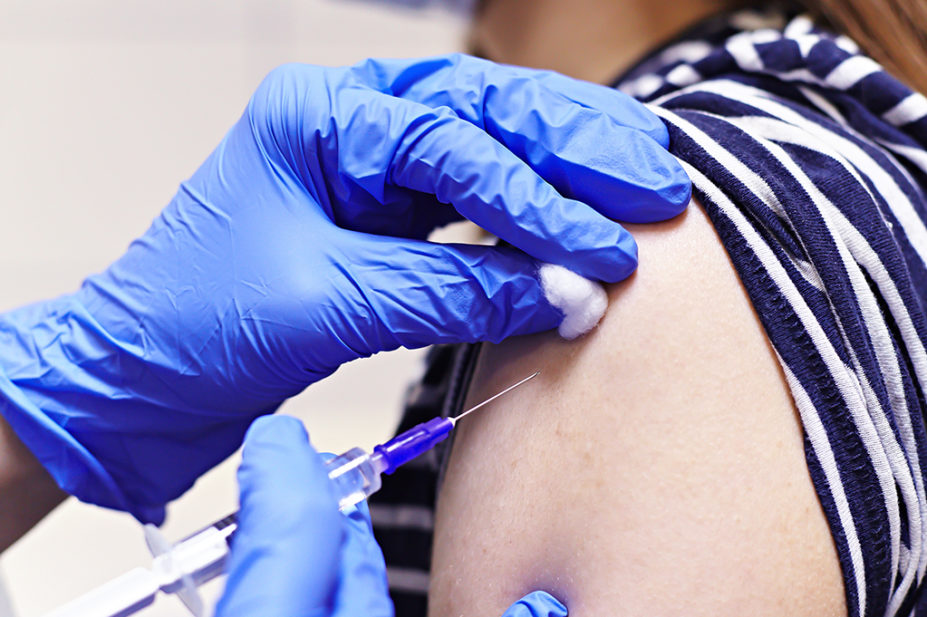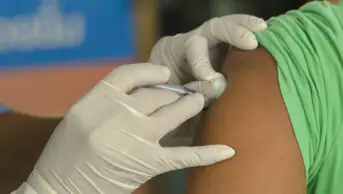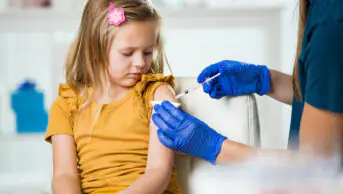
Shutterstock.com
Free flu vaccines under the 2022/2023 NHS Seasonal Influenza Vaccination Programme will no longer be offered to people aged 50 to 64 years in England, the government has announced.
In guidance published on 2 March 2022, the NHS said the flu vaccination programme will be returning to “pre-pandemic recommendations”, meaning that only those aged under 65 years who fall into one of ten clinical risk groups will be offered a vaccine on the NHS. These include people with chronic respiratory disease and chronic heart disease.
The government expanded the flu vaccination programme for the 2020/2021 and 2021/2022 flu seasons in response to the COVID-19 pandemic to include cohorts who would previously not have been eligible, including those aged between 50 and 64 years with no clinical conditions, household members of people who were shielding, and children in the first year of secondary school.
To cope with the increased demand, community pharmacies were able to order additional stocks of flu vaccine from centralised government supplies during both flu seasons.
However, the latest guidance notes that centralised stocks will not be in place for the 2022/2023 flu season.
“We strongly urge providers to order sufficient volumes of vaccine to serve their eligible populations in order to provide coverage at least equal to and ideally exceeding 2021/2022 uptake levels,” it said.
According to data from the Pharmaceutical Services Negotiating Committee (PSNC), as of 18 February 2022, community pharmacies had provided nearly 4.8 million flu vaccinations, of which 46% were to people aged between 50 and 64 years.
This represents a more than 80% increase on the just over 2.6 million flu jabs given in community pharmacies during the 2020/2021 season.
Nat Mitchell, pharmacist and director at JWW Allison and Sons pharmacy in Cockermouth, Cumbria, said that the decision to remove the eligibility of people aged 50 to 64 years would “massively affect our service going forward”.
“40% of our total for this season has been the 50–64 age group, so this will have a big effect on our overall service,” he said.
“From past experience I’d estimate that about 20% of those patients would’ve previously had [a vaccination] privately. A few more may choose to have a private jab this autumn after being introduced to flu jabs during the pandemic, but nothing like the numbers we have administered on the NHS service.”
Mitchell added that while he accepts the decision, “the late notice, which leaves us asking vaccine suppliers to allow us to reduce our orders, is far from ideal”.
“If suppliers deem that the new guidance isn’t sufficient to allow us to reduce our orders without penalty then we risk being severely out of pocket, with lots of vaccine going to waste,” he continued.
The government guidance also warned that some vaccines may only be available in limited quantities and advises pharmacies to place orders with more than one manufacturer to ensure providers receive sufficient stock.
NHS Scotland delivered its biggest flu vaccination programme since records began during the 2021/2022 flu season, in which community pharmacies were commissioned to provide the vaccine for the first time.
As of 10 February 2022, 2.7 million flu vaccines had been administered in Scotland across all providers, including community pharmacists.


